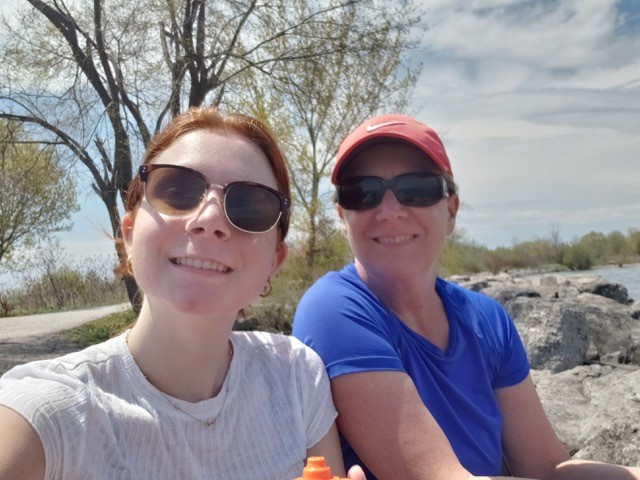
Alice and Kira's Story
Kira was an active 19-year-old Queen’s University student racing through winter finals before coming home to Toronto for the holidays. Within a month, she was undergoing pre-op testing for a liver transplant.
Her mother, Alice, would have described Kira as healthy before her liver shut down. No one knew she had a rare genetic disorder called Wilson disease, which causes copper to accumulate in the liver, brain, and other vital organs.
While Wilson disease is a very treatable disorder, it requires early diagnosis, which is often challenging because symptoms don’t appear until there is already damage. Unknowingly, Kira’s liver had been exposed to toxic conditions for 19 years and it was finally pushed over the edge. What started as a few weeks of fatigue, bloating, and nausea was actually end-stage liver disease that required an immediate liver transplant.
Alice remembers the ambulance ride with Kira from Kingston General Hospital to Toronto General Hospital, the feeling of utter disbelief that her seemingly healthy daughter had suddenly become so sick, and wondering if Kira was going to make it. It is the worst fear any parent can face. The doctors did not tell them how long she had, but Alice knew it was dire. But then, a matching donor was found. “It all happened so quickly,” Alice recalls.
She credits the medical team at Kingston General Hospital for working so swiftly to diagnose Kira, and the transplant team at Toronto General Hospital, which she describes as “the most well-oiled machine.” After arriving at the Kingston General Hospital emergency room on Thursday evening,
Kira was diagnosed Saturday afternoon, was at Toronto General Hospital Monday evening, and had her liver transplant that Sunday. Alice knows they were very fortunate to have gotten a transplant so quickly, but it speaks to how urgent Kira’s situation was. Alice wanted to share their family’s story, in part, to thank the donor for their gift: “Thank you doesn’t cover it. I don’t know anything about the donor or their family…but in that moment of unimaginable grief and anguish, they did something positive, and I'm sure it wasn't easy. Even in that dark time, they decided they wanted to do this. They saved my daughter’s life.”
Alice has also become a strong advocate for organ and tissue donation among her social circle and wants people to understand that this decision saves lives. Kira and her family are not taking this incredible gift and second chance for granted. Since her transplant, they have enjoyed a road trip to the US, a separate trip to Vancouver, watched Stevie Nicks (one of her favourite artists) perform in concert, and Kira is returning to school in the fall. Encouraging others to register as donors, Alice wants people to understand the impact of their decision:
“My daughter gets to travel, go to school, hang out with her friends…get married and have kids, if she wants to…she gets to live a life. I am just so grateful.”
